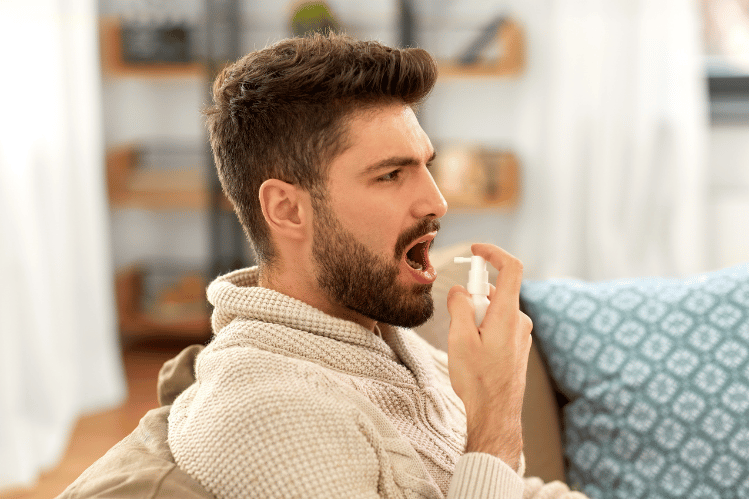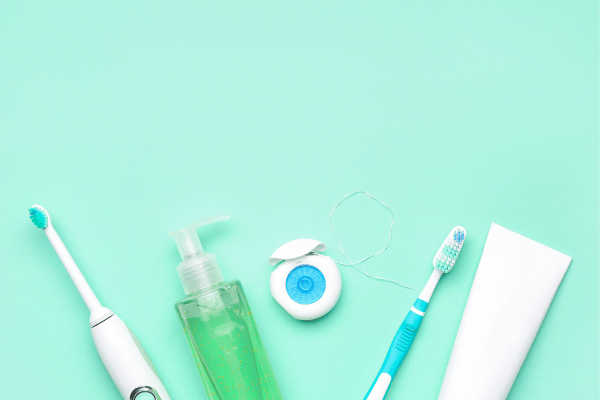
Table of Contents
-
Natural Remedies for Oral Health: Myths and Facts
-
Why is Oral Health Important?
-
Myths and Facts about Natural Remedies for Oral Health
-
Myth 1: A beautiful smile is the only aspect of oral health
-
Fact: General Well-Being Depends on Oral Health
-
Myth 2: Flossing is Enough to Maintain Dental Hygiene
-
Fact: An All-Inclusive Dental Care Plan Is Crucial
-
Myth 3: Natural Treatments Can Take the Place of Expert Dental Care
-
Fact: Natural remedies are a complement to medical care, not a replacement for it
-
Myth 4: Everyone Can Use Whitening Toothpaste Safely and Effectively
-
Fact: Not Everyone Should Use Whitening Toothpaste
-
Myth 5: Oil Pulling Is a Wonder Treatment
-
Fact: You Can Add Oil Pulling to Your Oral Hygiene Practice
-
Myth 6: The Key to Fresh Breath Is in Using Herbal Mouth Rinses
-
Fact: You Can Supplement Your Oral Care Routine with Herbal Mouth Rinses
-
Conclusion
People frequently notice your grin before anything else about you, so keeping your teeth healthy is crucial for both a gorgeous smile and your overall well-being. Although most people are aware of the reasons why oral hygiene is important, there are a lot of myths and misconceptions that can cause us to make poor decisions and ignore our dental health. In this blog post, we will examine the important components of dental hygiene and debunk some widespread misconceptions.
Why is Oral Health Important?
Maintaining good oral hygiene is essential to feeling fresh in your mouth and having a bright smile. In addition to eliminating the uncomfortable food particles that stick in your teeth, consistent brushing and flossing also eliminates microorganisms. You see, those little fellas want nothing more than to hang out in your mouth and cause all kinds of problems, such as foul breath and cavities. However, by maintaining your dental cleanliness schedule, you're eliminating them before they have a chance to cause damage.
The best part is that maintaining good oral health is about more than just looking good—though having a gorgeous smile is undoubtedly a plus. It has an effect on your general health as well. Therefore, maintaining regular brushing and flossing not only keeps your mouth healthy, but also your entire body. What a win-win situation!
Myths and Facts about Natural Remedies for Oral Health
Myth 1: A beautiful smile is the only aspect of oral health
Fact: General Well-Being Depends on Oral Health
One of the most widespread myths is that having a gorgeous smile is the main indicator of oral health. Although having a gorgeous smile is obviously advantageous, dental health is much more important than appearance. Since the mouth serves as a portal to the rest of the body, maintaining good dental hygiene is essential to your general health.
In addition to more serious illnesses like diabetes and cardiovascular disease, poor dental hygiene can cause gum disease, tooth decay, foul breath, and other health problems. Therefore, maintaining good dental health goes beyond aesthetics to protect your general health.
Myth 2: Flossing is Enough to Maintain Dental Hygiene
Fact: An All-Inclusive Dental Care Plan Is Crucial
Even though brushing your teeth is an essential component of dental care, it is insufficient on its own. Some individuals neglect their dental health because they think that brushing alone can keep it in good condition. A comprehensive dental care program consists of the following crucial elements:
- Brushing: To remove food particles, plaque, and bacteria from your teeth, you must brush them twice a day. Both cavities and gum disease are prevented by it.
- Flossing: If you want to maintain the spaces between your teeth and the gum line clean, flossing is essential. This helps remove dirt and keeps plaque and tartar from building up in hard-to-reach areas.
- Mouthwash: Use an antibacterial mouthwash to help get rid of bacteria and freshen your breath. It should not be used in place of brushing and flossing, but rather in addition to them.
- Frequent dental examinations: It's essential to see your dentist at least twice a year for cleanings by professionals and early diagnosis of oral problems.
- A Healthy Diet: Your oral health can be impacted by the foods you eat. Your teeth will benefit from a diet high in fruits and vegetables and low in sugary and acidic meals.
Myth 3: Natural Treatments Can Take the Place of Expert Dental Care
Fact: Natural remedies are a complement to medical care, not a replacement for it
There are plenty of natural dental hygiene remedies available online, like oil pulling and homemade toothpaste recipes. Even while these treatments have certain advantages, they shouldn't take the place of expert dental care.
Natural treatments can somewhat enhance oral health, but they cannot take the place of routine dental examinations and professional cleanings. In addition to having access to equipment and procedures that natural therapies cannot match, dentists are educated to detect and treat oral problems in an efficient manner.
Myth 4: Everyone Can Use Whitening Toothpaste Safely and Effectively
Fact: Not Everyone Should Use Whitening Toothpaste
A lot of individuals think that using whitening toothpaste is a simple, risk-free method of getting a whiter smile. Although it seems to work for some, it may not be suitable for everyone. Too much use of whitening toothpaste might damage dental enamel, even though the product's abrasive particles may help remove surface stains. Furthermore, some people may experience gum irritation or tooth sensitivity after using whitening toothpaste. Before using any whitening solutions, it's imperative to consult your dentist to determine whether they're a safe and appropriate option for your particular needs.

Myth 5: Oil Pulling Is a Wonder Treatment
Fact: You Can Add Oil Pulling to Your Oral Hygiene Practice
First up, let's talk about oil pulling, which is one of the most popular natural tooth care methods. It's likely that you've heard the hype about using coconut oil to clean your teeth and cleanse your mouth. Hold on, is oil pulling really as amazing a treatment as it seems? Not quite, though. Although oil pulling has the potential to reduce plaque and gingivitis and other health issues, it is not a replacement for brushing and flossing.
Although oil pulling isn't an ideal solution for dental health, it can nevertheless be beneficial to your total tooth care routine. According to certain research, oil pulling with coconut oil may help strengthen gums and lessen dangerous oral bacteria. Thus, oil pulling might be worth a try if you want to switch up your dental hygiene regimen; just don't throw away your toothbrush and floss just yet!

Myth 6: The Key to Fresh Breath Is in Using Herbal Mouth Rinses
Fact: You Can Supplement Your Oral Care Routine with Herbal Mouth Rinses
Finally, let's dispel the myth of natural teeth rinse cures. These all-natural mixtures, which contain tea tree oil and peppermint, promise to freshen breath and get rid of bacteria without using harsh chemicals. Doesn't it sound too good to be true? Alright, that might be. Although they might not be the best treatment for bad breath, herbal mouthwashes could be a pleasant addition to your oral hygiene regimen. Two items that can help eliminate germs and leave your tongue feeling minty fresh are peppermint and tea tree oil.
However, they must be used in conjunction with regular brushing and flossing—not as a substitute. Remember too that certain herbal ingredients may cause allergies or sensitivities. Therefore, even while they might not change everything, herbal mouthwashes can nonetheless give your dental hygiene regimen a little additional spark.
Conclusion
Maintaining good dental hygiene is essential for your general health and not just for keeping a gorgeous smile. Keep in mind that a smile is a representation of your happiness and well-being rather than merely a physical attribute. Thus, take care of it by going to the dentist on a regular basis and adhering to a thorough oral care routine.
FAQs
No, brushing and flossing should still be the main dental hygiene practices; natural therapies shouldn't take their place. While natural therapies can be a useful addition to your dental care regimen, they shouldn't be your only line of defense.
Activated charcoal is one natural remedy that can be abrasive and cause harm to tooth enamel if used excessively.



 Australia
Australia New Zealand
New Zealand Malaysia
Malaysia English
English Portuguese
Portuguese English
English English
English English
English English
English English
English Canada
Canada